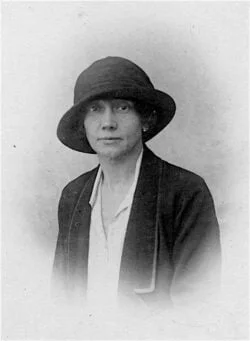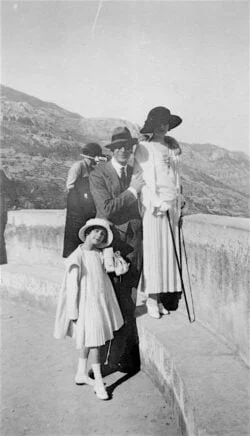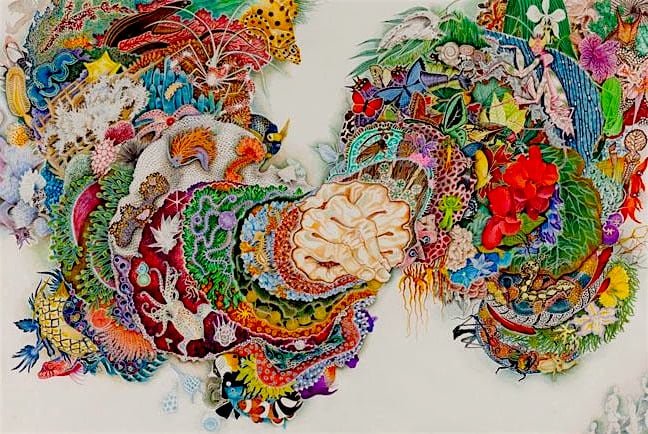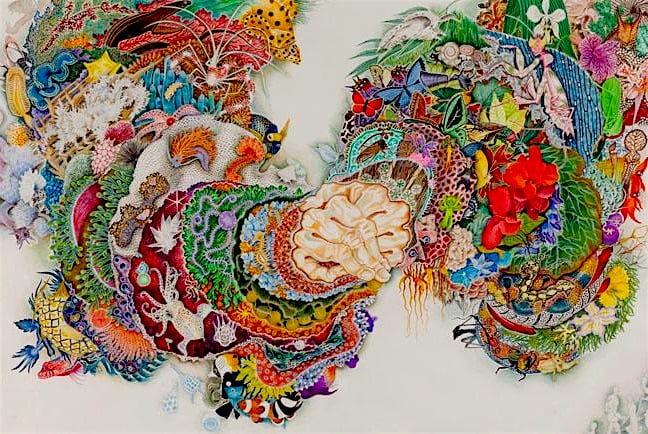#686 Exile on Pleasant Valley Road
Little Fortress
by Laisha Rosnau
Hamilton, Ontario: Wolsak & Wynn, 2019
$22.00 / 9781928088998
Reviewed by Mary-Ann and David Stouck
*
 What fascinated me as a novelist was how did these women who led these really large lives — these lives that took place all over the world — come to then seclude themselves in a house on Pleasant Valley Road (Vernon, BC) for 25 years? — Laisha Rosnau
What fascinated me as a novelist was how did these women who led these really large lives — these lives that took place all over the world — come to then seclude themselves in a house on Pleasant Valley Road (Vernon, BC) for 25 years? — Laisha Rosnau
We think Alice Munro would have been thrilled with this splendid novel by Laisha Rosnau, for here is a story, one in the latest line of maid’s tales that considers the options possible for a country girl in service and that also exposes “how little men know of the lives of women” (p. 305).

Inspired by a curious but not isolated chapter of Canadian history when European aristocracy took refuge in Canada subsequent to the First World War, Rosnau creates a narrative that indeed embraces the sweep of history from the 1880s to 1973. In a story titled “Hired Girl,” Alice Munro’s narrator says of herself that she does not have the grace or fortitude to be a servant, but Rosnau’s Inger-Marie Juul has exactly those qualities to be an invaluable servant all her life and one with a determination to tell her story.


Starting out as a farm girl in Jutland, Denmark (her brother will inherit the farm) she moves to Copenhagen where she becomes a shop clerk; then she follows a lover to the north of Denmark where she works as a waitress in a cafeteria, and moves yet further north to work on an island as a housekeeper for a lighthouse keeper, a widower with two small children. They too become lovers, but Miss Juul wants to see more of the world and returns to Copenhagen where, through the wife of the British ambassador to Denmark, she is soon hired to accompany and care for the family of a Danish businessman with company interests in Egypt.
Rosnau’s skill as a travel writer comes to the fore in evocative, often painterly descriptions of Cairo and especially of Alexandria with its crowded streets, palm gardens, and horseback riding in the desert where every detail is sharply defined and radiant. Important here, Inger-Marie and her married employer become lovers and this forms the precious centre of all her memories. The action of the novel also speeds up and our interest increases.


Subsequently Inger-Marie lives in Italy where she becomes a servant to a noble family, Leone and Ofelia Caetani and their daughter Sveva. As socialists, they are forced to flee Mussolini’s fascists in the early 1920s and finally take up residence in British Columbia where, in fact, the narrator spends more than half of her life looking after the Duke’s physically and emotionally frail wife.
At this point in the novel fiction yields to fact. After the Duke’s death in the mid-1930s, the three women live reclusively in the large home he had purchased in Vernon, only Miss Juul making connections with the outside world that are needed for their survival. Their presence in Vernon was viewed as exotic and eccentric. Few knew anything about their lives before they arrived in Vernon. But Sveva eventually studied at University of Victoria and became a painter and teacher in Vernon, her work as an artist receiving province-wide critical praise.
We have only seen one review thus far, but we assume there will be several glowing ones before long because this is a beautifully written story. The radical time shifts throughout the text are complicated and puzzling at first until the reader adjusts to them as reflecting the nature of remembering, which is never linear.
Rosnau, an accomplished poet and the author of a powerful first novel about teenage relationships, knows the value of style, of elegantly crafted phrases, and well-turned sentences — and she never falters. As the Caetanis are travelling down the mountains along rivers, Miss Juul observes “a thick white muscle of water below.” Watching a circus tent being set up in a field outside of town she reflects that “the light at that time of day was perfect, eerie.” Such resonant moments would indeed have thrilled Alice Munro.

*


Mary-Ann Stouck is a retired professor of English and Humanities at Simon Fraser University. She is the editor of Medieval Saints: A Reader (University of Toronto Press, 1999) and the author of a variety of essays and studies on saints’ lives and Middle English literature. David Stouck is an editor and biographer. His latest book is Arthur Erickson: An Architect’s Life (Douglas & McIntyre, 2013). Editor’s note: David Stouck has also reviewed books by Theresa Kiskhan, Kevin Spenst, Clea Roberts, and Eden Robinson for The Ormsby Review.
*

*
The Ormsby Review. More Books. More Reviews. More Often.
Publisher and Editor: Richard Mackie
The Ormsby Review is a journal service for serious coverage of B.C. books and authors, hosted by Simon Fraser University. The Advisory Board consists of Jean Barman, Robin Fisher, Cole Harris, Wade Davis, Hugh Johnston, Patricia Roy, David Stouck, and Graeme Wynn. Scholarly Patron: SFU Graduate Liberal Studies. Honorary Patron: Yosef Wosk. Provincial Government Patron since September 2018: Creative BC
“Only connect.” – E.M. Forster